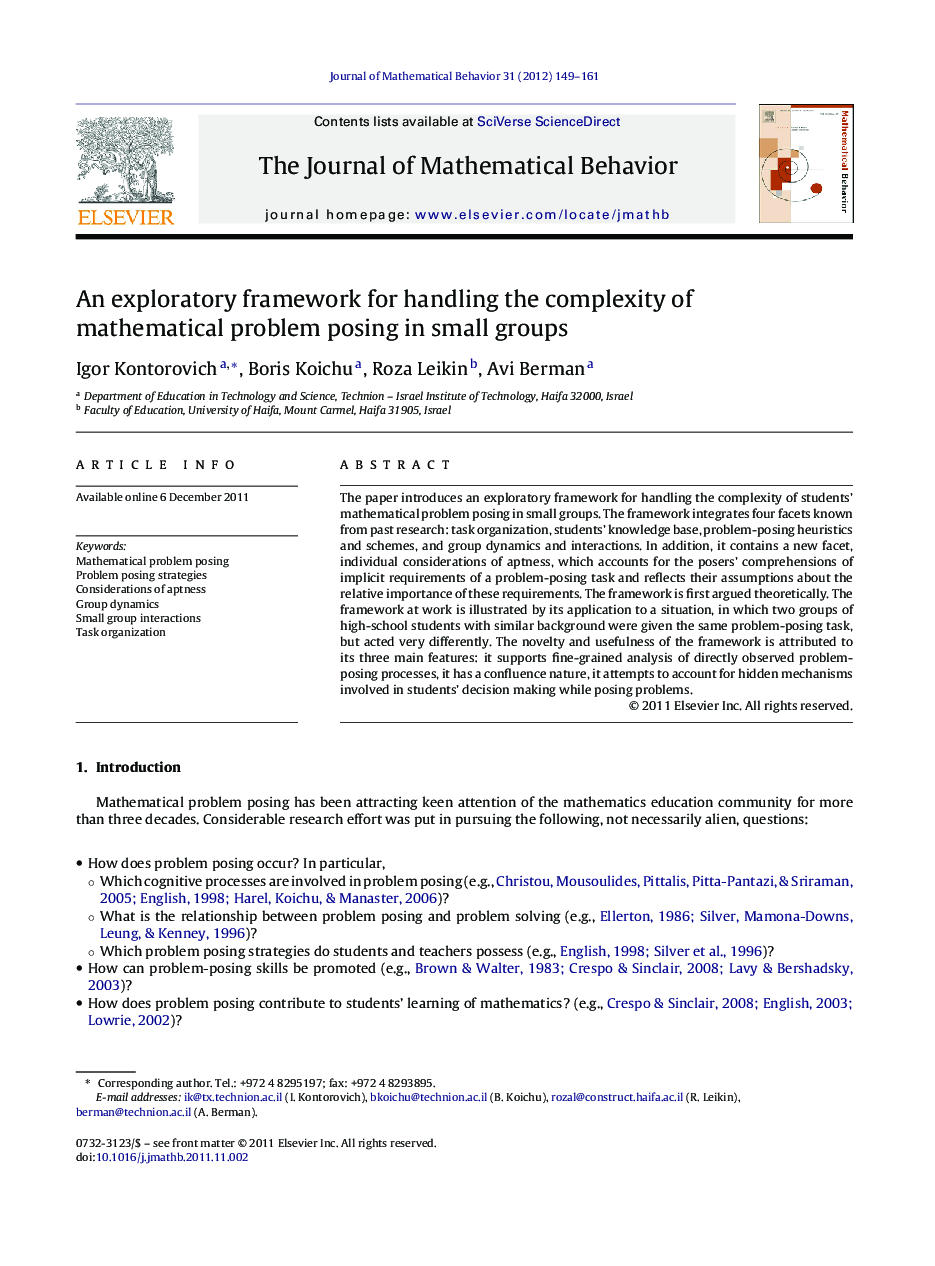| Article ID | Journal | Published Year | Pages | File Type |
|---|---|---|---|---|
| 360730 | The Journal of Mathematical Behavior | 2012 | 13 Pages |
The paper introduces an exploratory framework for handling the complexity of students’ mathematical problem posing in small groups. The framework integrates four facets known from past research: task organization, students’ knowledge base, problem-posing heuristics and schemes, and group dynamics and interactions. In addition, it contains a new facet, individual considerations of aptness, which accounts for the posers’ comprehensions of implicit requirements of a problem-posing task and reflects their assumptions about the relative importance of these requirements. The framework is first argued theoretically. The framework at work is illustrated by its application to a situation, in which two groups of high-school students with similar background were given the same problem-posing task, but acted very differently. The novelty and usefulness of the framework is attributed to its three main features: it supports fine-grained analysis of directly observed problem-posing processes, it has a confluence nature, it attempts to account for hidden mechanisms involved in students’ decision making while posing problems.
► A multi-facet framework for analyzing mathematical problem posing is developed. ► The role of normalization in problem posing in small groups is pointed out. ► Individual considerations of aptness influence problem posing in small groups. ► Differences in quality/quantity of the posed problems in two groups are explained.
